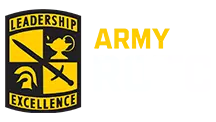Temple University Athletics

Alumni Spotlight: Barb Hick Questa
10.4.23 | General, Women's Lacrosse
This is the fifth in a series of spotlights on Temple Athletics alumni. The series started with the eight-member 2023 Athletics Hall of Fame Class, which will be inducted the weekend of October 6-7.
Alumni Spotlight: Barb Hick Questa
A member of one the greatest teams in Temple history, Barb Hick Questa was a key defender on the Owls' 1988 undefeated NCAA Championship Women's Lacrosse team. A Second Team IWLCA All-America and First Team all-Defensive team selection, Questa spearheaded a Temple defense that posted a staggering 5.7 goals against average in compiling an 18-0 record.
Over her stellar career, the Owls had a 67-5 won-loss record and were an amazing 35-1 in her final two seasons, with the lone loss coming to Penn State, 7-6, in the 1987 NCAA title game.
Also a four-year member of the Temple field hockey team, she was selected to the United States Women's Lacrosse team in 1988. She is still in college athletics, serving over 30 years as the senior women's administrator at St. Bonaventure University.
1) You grew up in Springfield, Pa. What was your thought process on choosing schools and why Temple?
"I was looking at a few schools. I had been to Temple once, in high school for a summer camp, so I was familiar with the campus but it wasn't originally right on my radar (to attend). I was looking at Delaware and Syracuse, as we have a long family history with Syracuse.
Originally, I was looking at field hockey because I did not pick up lacrosse until I was a sophomore in high school. Ironically my high school lacrosse coach was a teammate of Tina Sloan Green. So, she made a phone call to Tina and said she should look at me. Long story short, I came from a high school program that had not won a game in two years and was recruited by a team that had won its second national championship in three years. So, to me, it was a 'wow' moment.
I remember when assistant coach Sue Stahl came out to watch me play in a high school game, and we lost terribly. I remember her saying, 'It is not about the score it is about you. Are you coachable? Are you a good teammate? We can make you a better player.'
I went down to Temple for a visit, and I just started fitting right in. It had the majors I wanted, I grew up in Delaware County, I went to Springfield, and a lot of the kids on the team were all from Delaware or Montgomery County so I grew up playing against them. It ended up being a great fit."
2) What was it like playing under legendary coach Tina Sloan Green, who already had two National Championships when you arrived on campus?
"Tina is a quiet force. She talks very softly, but she is someone who believes in women's empowerment, believes in building women to be strong and not just on the lacrosse field, but in the classroom. That is a huge part of who she is and what she was trying to do as a coach.
To come to Temple and play for someone like her who had the lineage of two national championships was very humbling. I honestly did not think I belonged there. When I got to Temple and started to see the players, I did not feel I belonged there.
Tina was someone who always encouraged you and made you comfortable though. She is such a quiet presence. She really cared about the whole individual and really cared about us as women, and not just as lacrosse players. "
3) Talk about your amazing four-year career, capped off by an undefeated NCAA Championship season.
"In the four years I was a part of the program, we had a record of 67-5 with three undefeated regular seasons. That is hard to match. We were the premier team in the country at that time.
My junior year, we were undefeated and ranked #1 in the country. We had only two seniors on the team and one was our All-America goalie. So we went down to College Park, Md. for the Final Four and I think we were cocky and overconfident. We ended up losing by a goal to Penn State. After that game, a couple of us decided that nothing was going to stop us (next year).
So, my senior year we knew what we could accomplish, and we knew nothing was going to stop us. We ended up tearing through the season and we killed Penn State in the National Championship.
That spring we also played a game against the national team from Australia, regarded as one of the best in the world. They came over and played a lot of teams in the States and were killing them. Then we played them at Geasey Field, on a beautiful April day. They played a similar style to ours. We were perfectly matched, and we ended up winning by a goal. I think that was the game, in my mind, that made us realize we really can do this (win the National Championship).
4) You also juggled two sports, playing field hockey for four years. How difficult was that for you?
"I think it is sad that you can't do it anymore. Sadly, we have reached a point where so many kids have to specialize in one sport or the other, but that is what it is now. I think back then, we were fortunate that many of the women who played field hockey also played lacrosse.
While the games are very different, there are still similarities in the sports. We already knew how each other played. We knew our strengths and our weaknesses which helped both programs be very successful. My freshman year our field hockey team was in the Final Four. I wasn't a main contributor that year, but we had some very good athletes.
To me, I think playing both sports helped, especially with time management. I find that when you are out of season you all of the sudden have this free time and you can say to yourself, 'I can push things off.' To me the structure you had both in the fall (field hockey) and spring (lacrosse) was great. You just knew you had to get things done.
I don't think it was a challenge and I really enjoyed it."
5) You were selected as a member of the United States Women's Lacrosse team in 1988. Talk about that experience representing your country.
"I was invited to try out for the team, and you are going up against players that are a few years out of college and were legendary in that era. So, I thought 'I am not going to make the team, but I am trying my hardest' and then they called my name, and I was stunned.
Back then it was a roster of like 40 or 50 women, so it was a bigger roster. They were gearing up for the 1989 World Cup which was being held in Australia and Sue Stahl ended up being the coach of that team. I ended up not being selected as one of the 15 or 16 women to compete there, but I had a different opportunity. After not being selected, they asked for a group of individuals to go over to Czechoslovakia in the summer of 1989 to help introduce the sport behind the Iron Curtain.
It was a great opportunity so I ended up going over and spending a week in Czechoslovakia in the summer of 89. We worked with their athletes and ended up having a tournament at the end of the week with a team from Sweden coming down.
It was such an eye-opening experience. I was 23 years old, and I was behind the Iron Curtain right before it fell in October of 89. One of the things I realized was that it wasn't the people but the system and the government that were the evil ones."
6) Lastly, you transitioned from an athlete to one of the most respected female administrators in the nation, serving on the senior athletics staff at St. Bonaventure University. How rewarding has your professional career been, serving student-athletes for four decades?
"I love what I do because honestly, the experience I had at Temple is the experience I want every student-athlete to have. Yes, winning is a big part of that and does help in a lot of ways, but it is important to me that young people realize all that you can get out of sports.
I am a big believer in education through sport. I think sport teaches you so much, and this is part of what we are doing. We develop young people. It is not just about, 'Can you throw a lacrosse ball or can you run fast?' There are so many other things that go into it, including winning and losing. It is conflict resolution and how do you learn to work with your teammates when you have differences?
I never wanted to be a coach, I always wanted to be an administrator. So, to work with coaches and as a byproduct student-athletes, to ensure they have that great experience and to have them leave four years later and feel they had the best four years of their lives. That is what matters."
Alumni Spotlight: Barb Hick Questa
A member of one the greatest teams in Temple history, Barb Hick Questa was a key defender on the Owls' 1988 undefeated NCAA Championship Women's Lacrosse team. A Second Team IWLCA All-America and First Team all-Defensive team selection, Questa spearheaded a Temple defense that posted a staggering 5.7 goals against average in compiling an 18-0 record.
Over her stellar career, the Owls had a 67-5 won-loss record and were an amazing 35-1 in her final two seasons, with the lone loss coming to Penn State, 7-6, in the 1987 NCAA title game.
Also a four-year member of the Temple field hockey team, she was selected to the United States Women's Lacrosse team in 1988. She is still in college athletics, serving over 30 years as the senior women's administrator at St. Bonaventure University.
1) You grew up in Springfield, Pa. What was your thought process on choosing schools and why Temple?
"I was looking at a few schools. I had been to Temple once, in high school for a summer camp, so I was familiar with the campus but it wasn't originally right on my radar (to attend). I was looking at Delaware and Syracuse, as we have a long family history with Syracuse.
Originally, I was looking at field hockey because I did not pick up lacrosse until I was a sophomore in high school. Ironically my high school lacrosse coach was a teammate of Tina Sloan Green. So, she made a phone call to Tina and said she should look at me. Long story short, I came from a high school program that had not won a game in two years and was recruited by a team that had won its second national championship in three years. So, to me, it was a 'wow' moment.
I remember when assistant coach Sue Stahl came out to watch me play in a high school game, and we lost terribly. I remember her saying, 'It is not about the score it is about you. Are you coachable? Are you a good teammate? We can make you a better player.'
I went down to Temple for a visit, and I just started fitting right in. It had the majors I wanted, I grew up in Delaware County, I went to Springfield, and a lot of the kids on the team were all from Delaware or Montgomery County so I grew up playing against them. It ended up being a great fit."
2) What was it like playing under legendary coach Tina Sloan Green, who already had two National Championships when you arrived on campus?
"Tina is a quiet force. She talks very softly, but she is someone who believes in women's empowerment, believes in building women to be strong and not just on the lacrosse field, but in the classroom. That is a huge part of who she is and what she was trying to do as a coach.
To come to Temple and play for someone like her who had the lineage of two national championships was very humbling. I honestly did not think I belonged there. When I got to Temple and started to see the players, I did not feel I belonged there.
Tina was someone who always encouraged you and made you comfortable though. She is such a quiet presence. She really cared about the whole individual and really cared about us as women, and not just as lacrosse players. "
3) Talk about your amazing four-year career, capped off by an undefeated NCAA Championship season.
"In the four years I was a part of the program, we had a record of 67-5 with three undefeated regular seasons. That is hard to match. We were the premier team in the country at that time.
My junior year, we were undefeated and ranked #1 in the country. We had only two seniors on the team and one was our All-America goalie. So we went down to College Park, Md. for the Final Four and I think we were cocky and overconfident. We ended up losing by a goal to Penn State. After that game, a couple of us decided that nothing was going to stop us (next year).
So, my senior year we knew what we could accomplish, and we knew nothing was going to stop us. We ended up tearing through the season and we killed Penn State in the National Championship.
That spring we also played a game against the national team from Australia, regarded as one of the best in the world. They came over and played a lot of teams in the States and were killing them. Then we played them at Geasey Field, on a beautiful April day. They played a similar style to ours. We were perfectly matched, and we ended up winning by a goal. I think that was the game, in my mind, that made us realize we really can do this (win the National Championship).
4) You also juggled two sports, playing field hockey for four years. How difficult was that for you?
"I think it is sad that you can't do it anymore. Sadly, we have reached a point where so many kids have to specialize in one sport or the other, but that is what it is now. I think back then, we were fortunate that many of the women who played field hockey also played lacrosse.
While the games are very different, there are still similarities in the sports. We already knew how each other played. We knew our strengths and our weaknesses which helped both programs be very successful. My freshman year our field hockey team was in the Final Four. I wasn't a main contributor that year, but we had some very good athletes.
To me, I think playing both sports helped, especially with time management. I find that when you are out of season you all of the sudden have this free time and you can say to yourself, 'I can push things off.' To me the structure you had both in the fall (field hockey) and spring (lacrosse) was great. You just knew you had to get things done.
I don't think it was a challenge and I really enjoyed it."
5) You were selected as a member of the United States Women's Lacrosse team in 1988. Talk about that experience representing your country.
"I was invited to try out for the team, and you are going up against players that are a few years out of college and were legendary in that era. So, I thought 'I am not going to make the team, but I am trying my hardest' and then they called my name, and I was stunned.
Back then it was a roster of like 40 or 50 women, so it was a bigger roster. They were gearing up for the 1989 World Cup which was being held in Australia and Sue Stahl ended up being the coach of that team. I ended up not being selected as one of the 15 or 16 women to compete there, but I had a different opportunity. After not being selected, they asked for a group of individuals to go over to Czechoslovakia in the summer of 1989 to help introduce the sport behind the Iron Curtain.
It was a great opportunity so I ended up going over and spending a week in Czechoslovakia in the summer of 89. We worked with their athletes and ended up having a tournament at the end of the week with a team from Sweden coming down.
It was such an eye-opening experience. I was 23 years old, and I was behind the Iron Curtain right before it fell in October of 89. One of the things I realized was that it wasn't the people but the system and the government that were the evil ones."
6) Lastly, you transitioned from an athlete to one of the most respected female administrators in the nation, serving on the senior athletics staff at St. Bonaventure University. How rewarding has your professional career been, serving student-athletes for four decades?
"I love what I do because honestly, the experience I had at Temple is the experience I want every student-athlete to have. Yes, winning is a big part of that and does help in a lot of ways, but it is important to me that young people realize all that you can get out of sports.
I am a big believer in education through sport. I think sport teaches you so much, and this is part of what we are doing. We develop young people. It is not just about, 'Can you throw a lacrosse ball or can you run fast?' There are so many other things that go into it, including winning and losing. It is conflict resolution and how do you learn to work with your teammates when you have differences?
I never wanted to be a coach, I always wanted to be an administrator. So, to work with coaches and as a byproduct student-athletes, to ensure they have that great experience and to have them leave four years later and feel they had the best four years of their lives. That is what matters."
Ep. 8: Temple Athletics Weekly Recap; Women's Cross Country Runner Amelia Sabatino
Tuesday, September 30
Ep. 7: Temple Field Hockey Alumna Cherifa Howarth
Friday, September 26
Ep. 6: Temple Athletics Weekly Recap; Field Hockey's Peyton Rieger
Tuesday, September 23
Temple Men's Basketball | Mic'd Up at Temple Women's Volleyball Game
Friday, September 19











